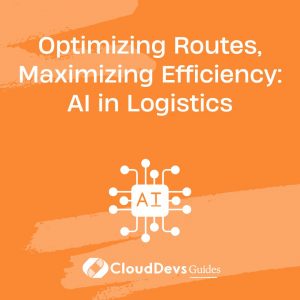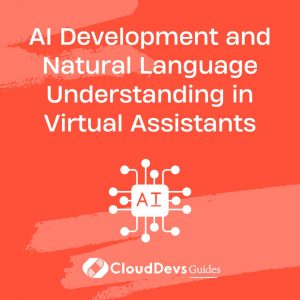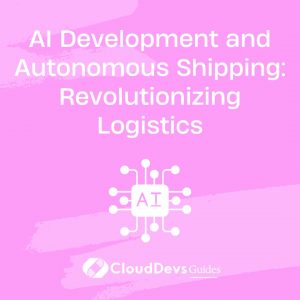Optimizing Routes, Maximizing Efficiency: AI in Logistics
In the ever-evolving world of technology, artificial intelligence (AI) has emerged as a game-changer for businesses across various industries. One of its significant applications is in supply chain management, where AI has proven to be a transformative force in streamlining operations, reducing costs, and enhancing efficiency. In this article, we’ll delve into the role of AI in supply chain optimization and explore real-world examples of its impact.
1. The Power of AI in Supply Chain Optimization
Supply chain management is a complex web of processes involving procurement, production, distribution, and logistics. Traditionally, these operations relied heavily on manual labor and rule-based systems. However, with the advent of AI, businesses can now harness the power of data-driven decision-making, predictive analytics, and automation to optimize their supply chains.
1.1. Demand Forecasting
AI-driven demand forecasting is revolutionizing the way companies predict customer needs. By analyzing historical data, market trends, and external factors like weather or economic indicators, AI algorithms can provide highly accurate demand forecasts. This enables businesses to better align their production and inventory levels with actual demand, reducing overstocking or stockouts.
[Demand Forecasting with AI] (https://www.supplychaindive.com/news/demand-forecasting-with-ai-machine-learning-improves-supply-chain/516600/)
1.2. Inventory Management
Effective inventory management is crucial for cost control and customer satisfaction. AI helps in optimizing inventory levels by continuously monitoring sales data, lead times, and supplier performance. It can automatically reorder products when stock runs low and identify slow-moving items that may require special attention. This prevents excess inventory and frees up capital for other investments.
[AI in Inventory Management] (https://www.forbes.com/sites/forbestechcouncil/2020/05/04/how-ai-can-optimize-inventory-management-for-ecommerce/?sh=6c464c0f1a4d)
1.3. Route Optimization
In the realm of logistics, route optimization is a critical component of supply chain efficiency. AI-powered route planning algorithms take into account factors like traffic conditions, delivery windows, and vehicle capacity to optimize delivery routes. This not only reduces fuel consumption but also ensures on-time deliveries, enhancing customer satisfaction.
[AI in Logistics and Route Optimization] (https://www.digit.in/features/tech/7-ways-ai-can-optimize-logistics-and-route-planning-61013.html)*
1.4. Quality Control
AI can also play a significant role in ensuring product quality along the supply chain. Machine vision systems equipped with AI can inspect products for defects with incredible precision, reducing the chances of faulty products reaching consumers. This not only saves costs related to recalls but also safeguards a brand’s reputation.
2. Real-World Examples
Let’s take a closer look at how AI has made a tangible impact on supply chain optimization in real-world scenarios:
2.1 Amazon’s Fulfillment Centers
Amazon, the e-commerce giant, relies heavily on AI to optimize its vast network of fulfillment centers. AI-powered robots assist in picking and packing orders, reducing human error and increasing efficiency. Additionally, AI algorithms forecast demand, allowing Amazon to strategically position inventory closer to customers, enabling faster deliveries.
2.2 Walmart’s Shelf-Scanning Robots
Walmart has deployed shelf-scanning robots equipped with AI to monitor inventory levels and identify misplaced items in its stores. These robots not only save time for store employees but also help maintain accurate stock levels, leading to improved customer experiences.
2.3 UPS’s ORION System
United Parcel Service (UPS) utilizes the ORION (On-Road Integrated Optimization and Navigation) system, which employs AI to optimize delivery routes for its drivers. By considering factors like package size, delivery windows, and traffic conditions, UPS reduces fuel consumption and delivery times, ultimately saving millions of dollars annually.
Conclusion
Artificial intelligence is undeniably transforming the supply chain landscape. Early-stage startup founders, VC investors, and tech leaders should take note of these developments and consider how AI can help their organizations outperform the competition. From demand forecasting to route optimization and quality control, AI offers a plethora of opportunities to streamline operations and drive business success.
As we move further into the digital age, embracing AI in supply chain management is not just an option but a necessity for those looking to stay ahead in the competitive world of business.
Table of Contents









